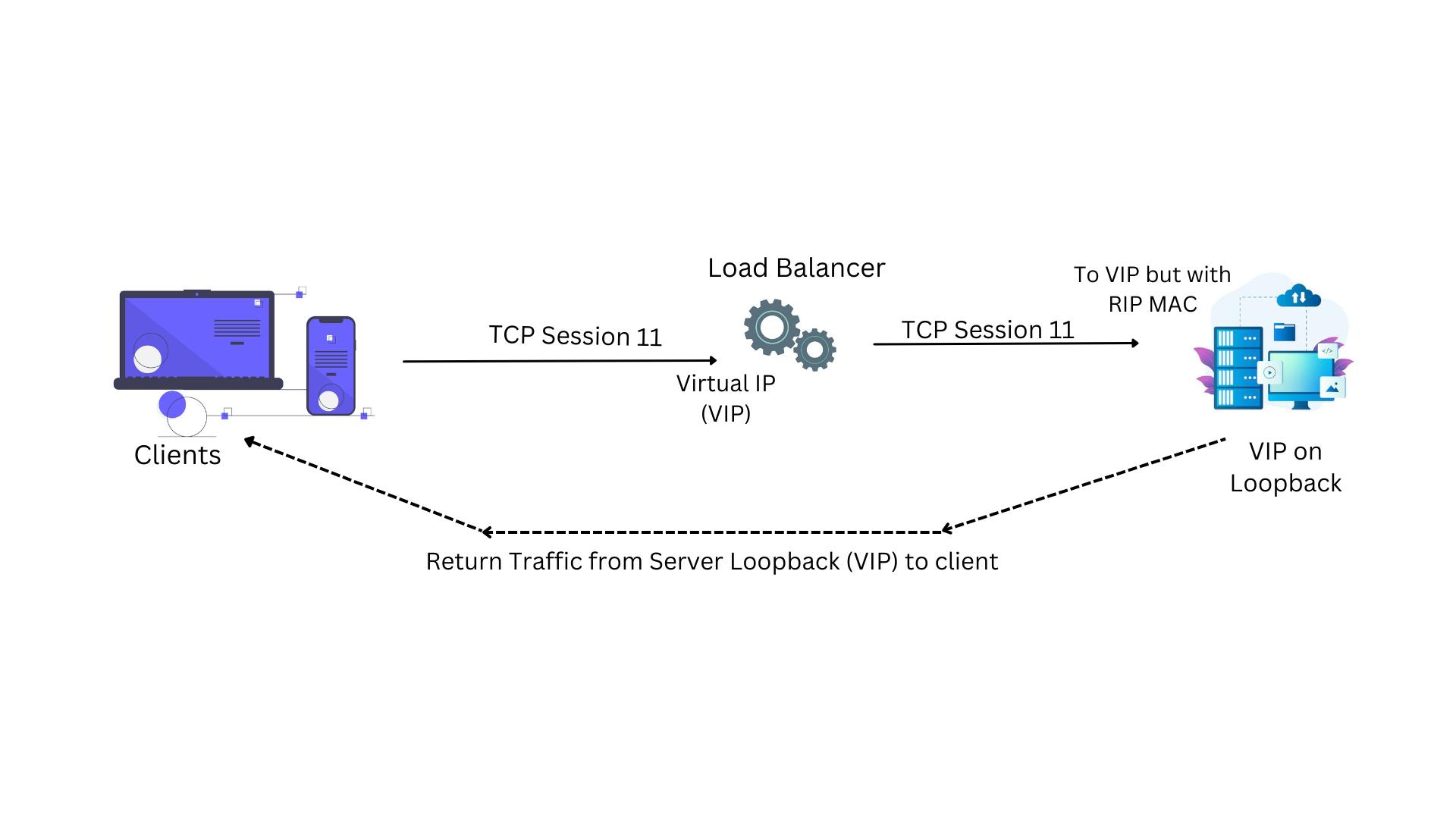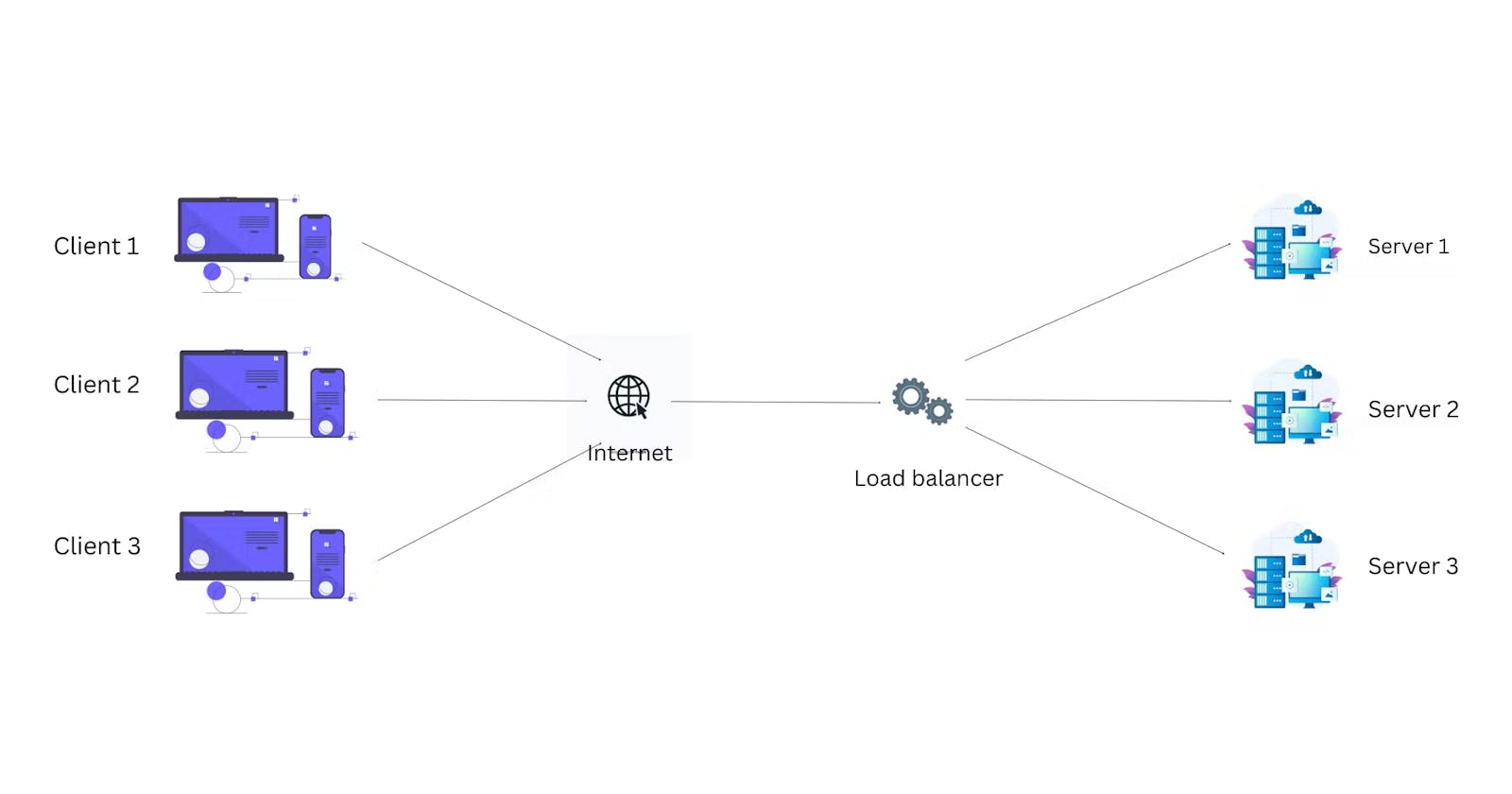1. Round Robin DNS (RRDNS)
2. Inbound proxy – Layer 7 load balancing
3. Inbound NAT – Layer 4 load balancing
4. DSR load balancing
1. Round Robin DNS (RRDNS)→ This is the simplest load-balancing method. the balancing is done by a type of DNS server. In this configuration, as clients request to resolve the a.example.com hostname, the DNS server will return the IP of Server 1; then, when the next client requests it, it will return the IP for Server 2, and so on.
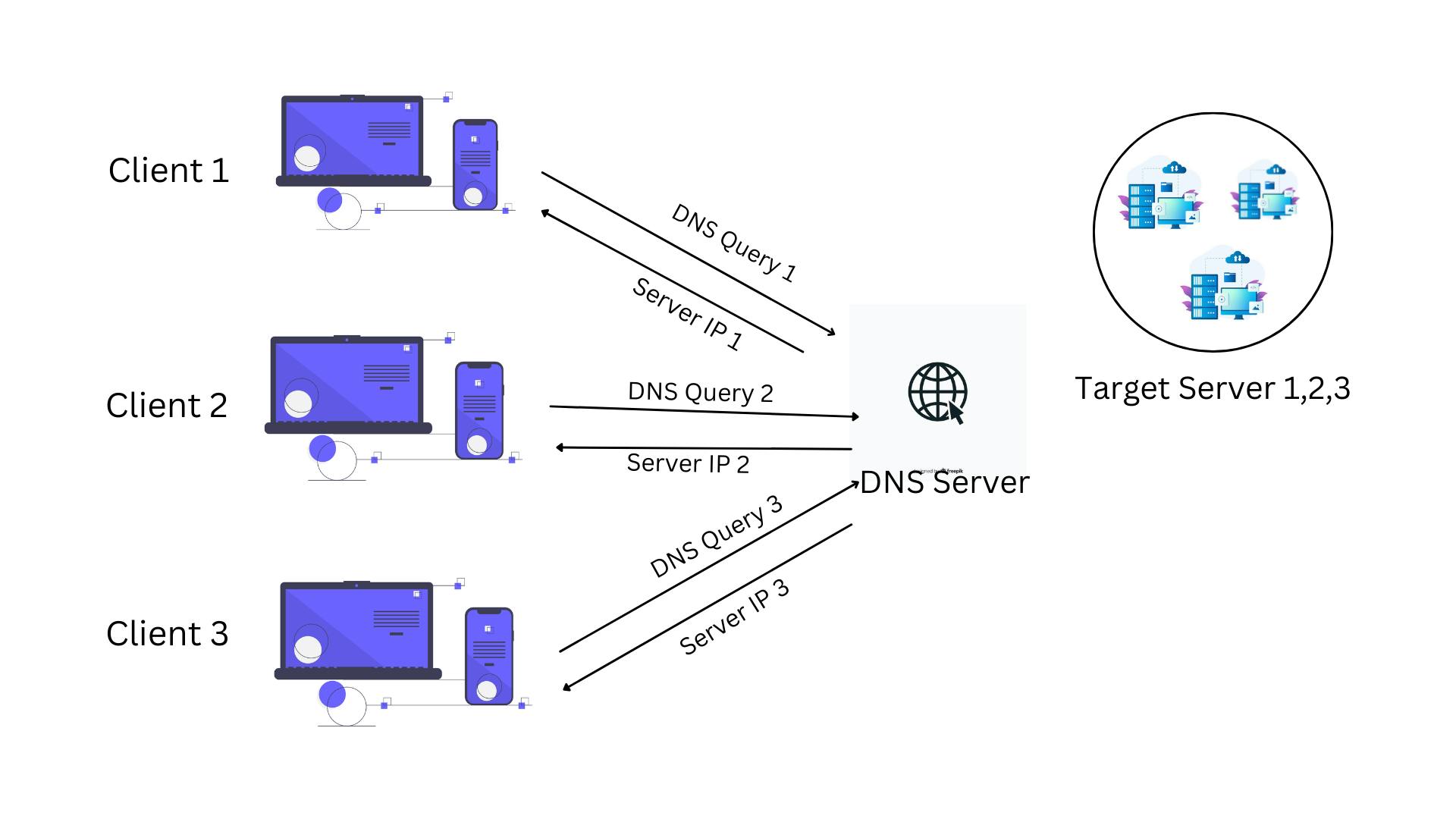
2. Inbound proxy – Layer 7 load balancing → In this architecture, the client's sessions are terminated at the proxy server. A new session is started between the inside interface of the proxy and the real server IP.
It maintains two separate connections:
→ One with the user: the load-balancer acts as a server. It takes requests and forwards responses
→ One with the server: The load-balancer acts as a user: it forwards requests and gets responses
In this, the final "hop" between the load balancer and the target servers is an entirely new session – this means that invalid protocol attacks are mostly filtered out, without any particular configuration being required at all.
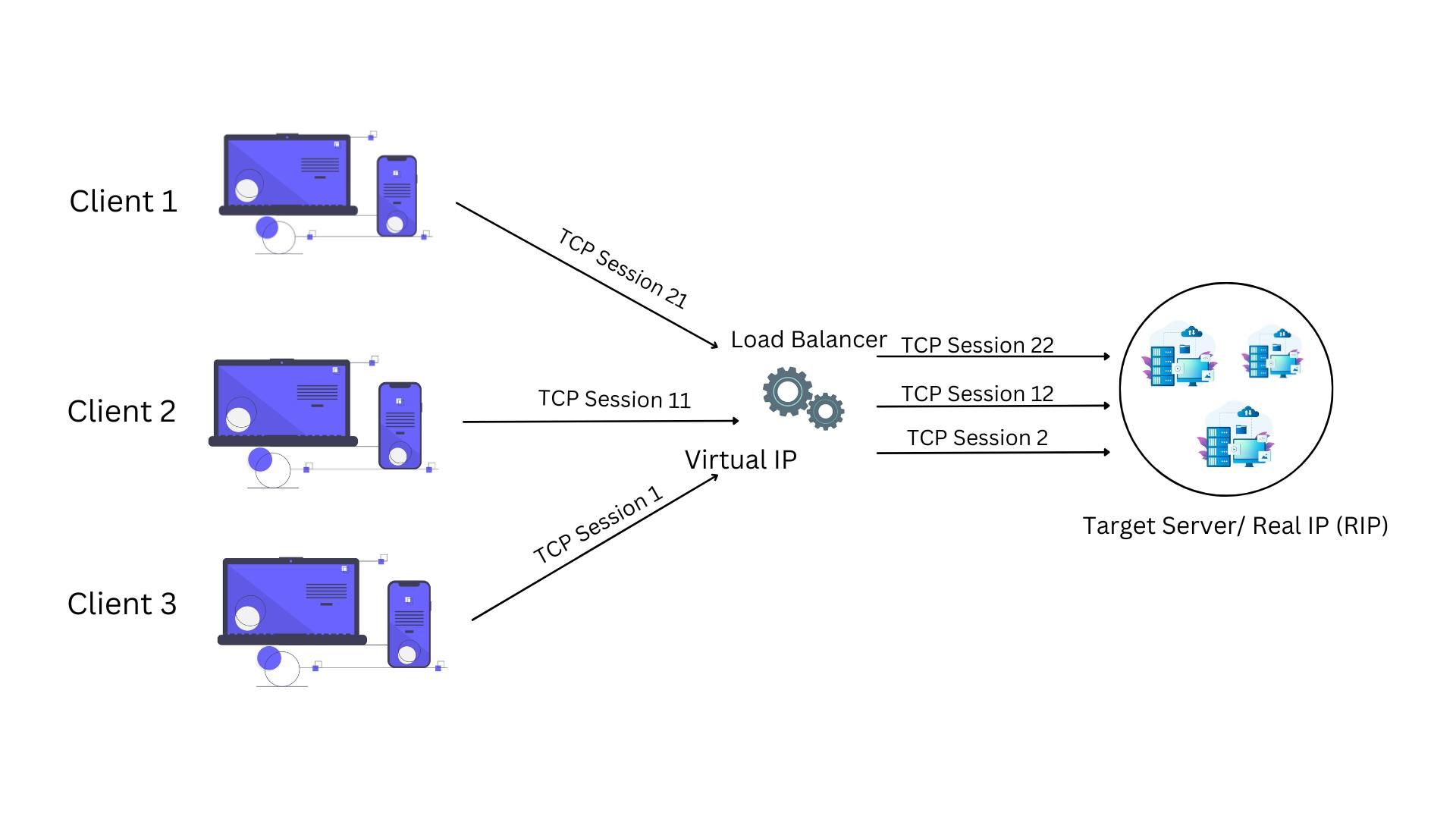
3. Inbound NAT – Layer 4 load balancing→ The load-balancer will route traffic between the user and server by changing the destination IP address of the packets.
Inbound NAT (Network Address Translation) is used to redirect traffic from a public IP address to a private IP address. So, instead of sharing different IPs, it shares the same public IP address
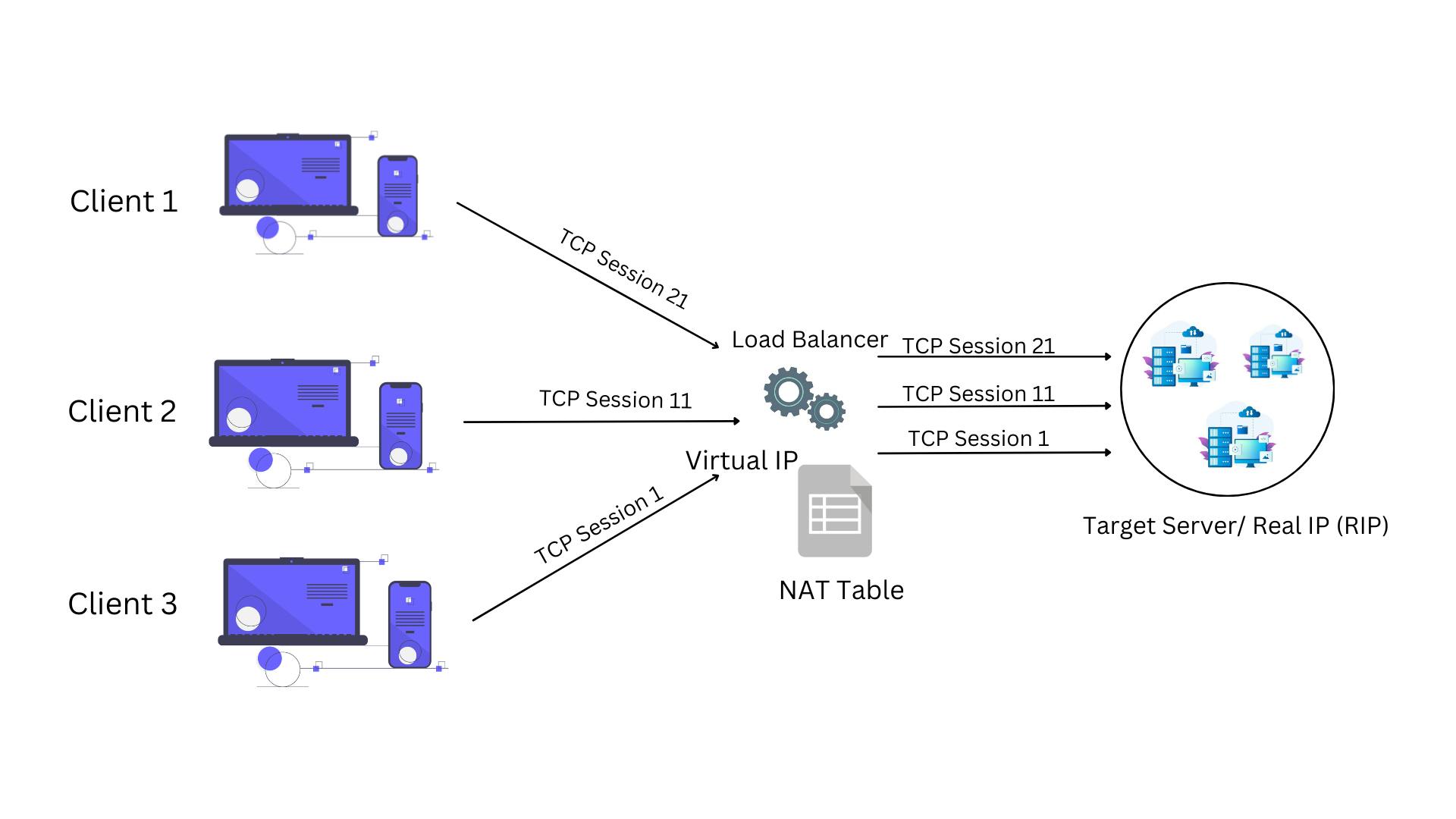
4. Direct server return(DSR) load balancing → There is a major drawback in previous methods: incoming requests can be small - for example, 20Mbits - but replies are typically up to ten times bigger (200Mbits). DSR modifies the traffic flow by permitting the server to respond directly to the client, relieving the network load balancer of the need to handle the heavy traffic load.
